from UConn Today
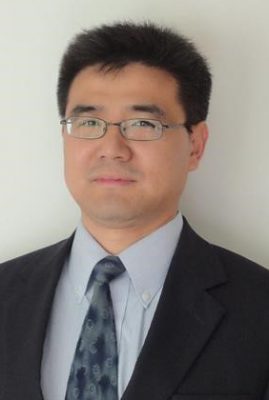
Three new grants totaling $7.5 million from ARPA-E and the U.S. Department of Energy (DOE) are enabling UConn researchers to conduct ground-breaking work on some of the nation’s most pressing energy problems.
Advanced Research Projects Agency-Energy (ARPA-E) grants provide funding for the development of transformational technologies that provide new ways of generating, storing, and using energy.
Shrinking Substations for Green Energy Integration
Yang Cao, a professor in the School of Engineering, is working on a three-year ARPA-E project to create a new technology that will help stabilize the power grid and integrate renewable energy sources into the existing energy infrastructure.
Substations are sprawling networks of wires, towers, and transformers. Substations change the high voltage that comes directly from energy generation stations into low voltage that can safely be delivered to homes or businesses.
The century-old energy infrastructure in the United States is prone to power outages, especially during increasingly common severe weather.
This infrastructure is also poorly suited to renewable energy sources as they were designed for fossil fuels.
With something like wind or solar energy, the energy sources are spread out across a huge expanse rather than coming from a neatly packaged oil barrel. Solar panels or wind turbines also tend to be in remote areas far from major cities that have massive electrical needs. This means we need more efficient technologies that can link distributed energy generators to urban areas.
Cao will work with Virginia Tech on the project, titled Substation in a Cable for Adaptable, Low-cost Electrical Distribution (SCALED), to develop high-voltage cables to replace bulky substations.
“We need a more versatile and compact conversion and integration solution for distributed renewable energies,” Cao says. “This overall project is targeting that.”
Making something this compact will be highly advantageous as they can be placed almost anywhere, whereas current substations require a tremendous amount of open space.
The goal of the project is to greatly reduce the footprint of substation technologies without compromising its effectiveness.
“We could really have a very compact substation that helps to convert and integrate the distributed energy generation into a grid instead of having really large, bulky substations,” Cao says.
A Better Path for New Materials
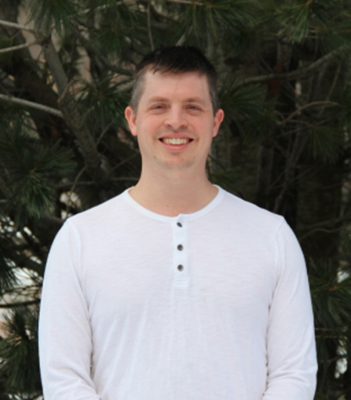
Nate Hohman, assistant professor of chemistry, is working on a new DOE grant to develop artificial intelligence (AI) tools to improve the synthesis of new materials.
While scientists are constantly innovating new materials for energy, biotechnology, and many other applications, currently, the best tool they have at their disposal for this process is trial and error.
“Engineering a new hypothetical material today requires guesswork at every step,” Hohman says. “We guess what compounds might crystallize into a structure that may have a property of interest, hope we get the material we expected, and pray it has the properties we imagined. This is inefficient, labor intensive, and has a low likelihood of success.”
Hohman will combine nano-crystallographic characterization with Euclidean neural networks to develop a better technique for real-time characterization of materials using a continuously variable model material system.
Crystal characterization allows scientists to see how the atoms that make up a molecule are arranged. This information is critical for designing new materials as this structure is what determines what the material can do.
Hohman recently found a way to study crystal structure using an X-ray beam. This allowed his team to capture a crystal’s single diffraction pattern and merged them into a data set they can use to determine the atomic structure. This speeds up the process of characterizing new materials from months or even years to just hours.
Euclidean neural networks are artificial neural networks inspired by the human brain. A set of artificial neurons transmits signals to other neurons in the system in order to classify objects. Hohman’s collaborator Tess Smidt at MIT developed Euclidean neural networks that can handle 3-D geometries, like those of molecules.
Hohman in collaboration with other synthetic materials scientists, computational crystallographers, and deep learning researchers will use these networks to train machine learning algorithms to predict new phases of materials. This will help eliminate guesswork from materials development.
Hohman will have the neural networks will help scientists design and generate novel atomic geometries with desirable properties based on what the scientists want the material to do.
Designing for High Heat

Julián Norato, associate professor of mechanical engineering, is working on an ARPA-E grant to develop computational techniques to design highly efficient and compact heat exchangers.
Heat exchangers are mechanical devices that transfer heat from a hot to a cold fluid. They are found in everything from air conditioners to space heaters to chemical plants to airplanes.
The heat exchangers Norato’s group will focus on operate at temperatures above 1100 degrees Celsius (approximately 2000 degrees Fahrenheit). These high-temperature heat exchangers are used in many applications, including gas turbine engines, waste heat recovery and hydrogen production.
The grant will focus on plate-and-frame heat exchangers, which consist of stacks of plates bolted together to a frame. The hot and cold fluids flow between alternate plates. Each plate has a pattern of obstacles to the flow embossed on one side. This helps increase the amount of heat transferred from the hot fluid to the plates, and to the cold fluid flowing through the adjacent plates.
“The fluid is forced to go through the flow structures inside the plates,” Norato says. “Essentially, you’re putting obstacles to the fluid to force it to mix and spend more time going from the inlet to the outlet of the plate.”
What these obstacles look like will determine how efficient the heat transfer is. The computational techniques that Norato’s group will formulate will determine the optimal shape and pattern of these obstacles to maximize the heat transfer. At the same time, the design must ensure the pressure drop the fluid experiences as it flows through a plate is kept to a minimum, and that the plates can sustain the pressure the fluid exerts at the high operating temperatures.
The researchers are also interested in making the device as small and light as possible, which is especially important in aerospace applications that have space and weight restrictions.
The project will be conducted in collaboration with Altair Engineering, whose computational fluid dynamics software the researchers will use to simulate the heat transfer and the mechanical behavior of the heat exchanger.
Norato will also collaborate with researchers from Michigan State University, who have developed an additive manufacturing technique to efficiently 3D print the heat exchanger plates out of a metal alloy that can operate at high temperatures. They will 3D print the plate designs obtained by the computational techniques developed by Norato and test the performance and integrity of the heat exchanger in an experimental setup.
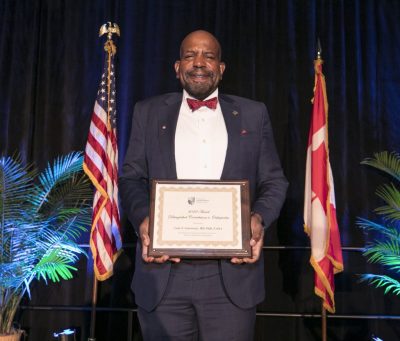
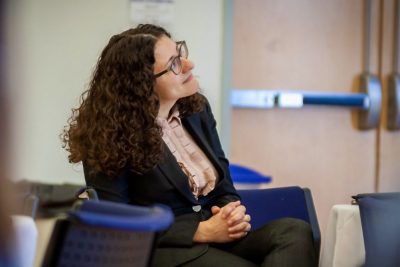
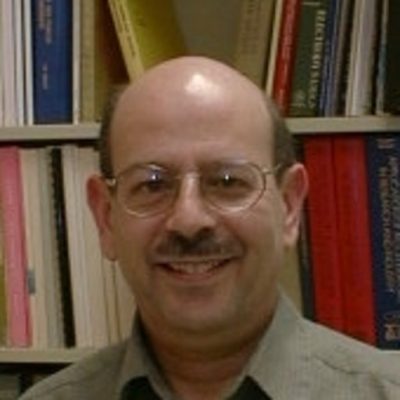 IMS is saddened to report the recent passing of Dr. Jeffrey Schweitzer, Professor in the department of Physics with an appointment in IMS. We are grateful to Dr. Peter Schweitzer (not related) for the following recap of Dr. Schweitzer’s background and tenure at UConn:
IMS is saddened to report the recent passing of Dr. Jeffrey Schweitzer, Professor in the department of Physics with an appointment in IMS. We are grateful to Dr. Peter Schweitzer (not related) for the following recap of Dr. Schweitzer’s background and tenure at UConn: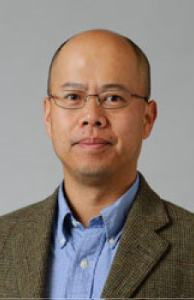
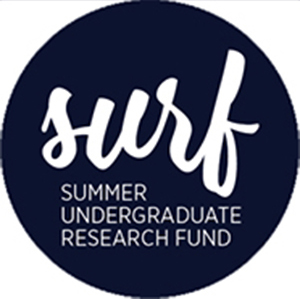 With the assistance of faculty mentors, UConn students in all majors, across all UConn campuses, conduct research or creative projects each year in pursuit of the Summer Undergraduate Research Fund (SURF) Award.
With the assistance of faculty mentors, UConn students in all majors, across all UConn campuses, conduct research or creative projects each year in pursuit of the Summer Undergraduate Research Fund (SURF) Award. 
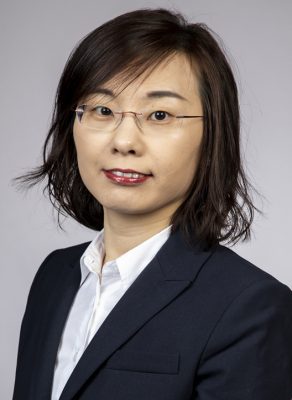 MSE Assistant Professor Xueju “Sophie” Wang has been awarded the NSF Faculty Early Development Program CAREER Award for her proposal entitled “Mechanics of Active Polymers and Morphing structures: Determine the Role of Molecular Interactions and Stiffness Heterogeneity in Reversible Shape Morphing.” It is one of NSF’s most prestigious awards.
MSE Assistant Professor Xueju “Sophie” Wang has been awarded the NSF Faculty Early Development Program CAREER Award for her proposal entitled “Mechanics of Active Polymers and Morphing structures: Determine the Role of Molecular Interactions and Stiffness Heterogeneity in Reversible Shape Morphing.” It is one of NSF’s most prestigious awards.